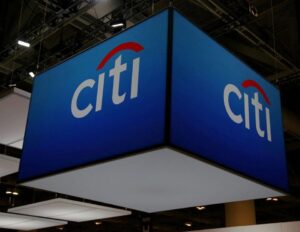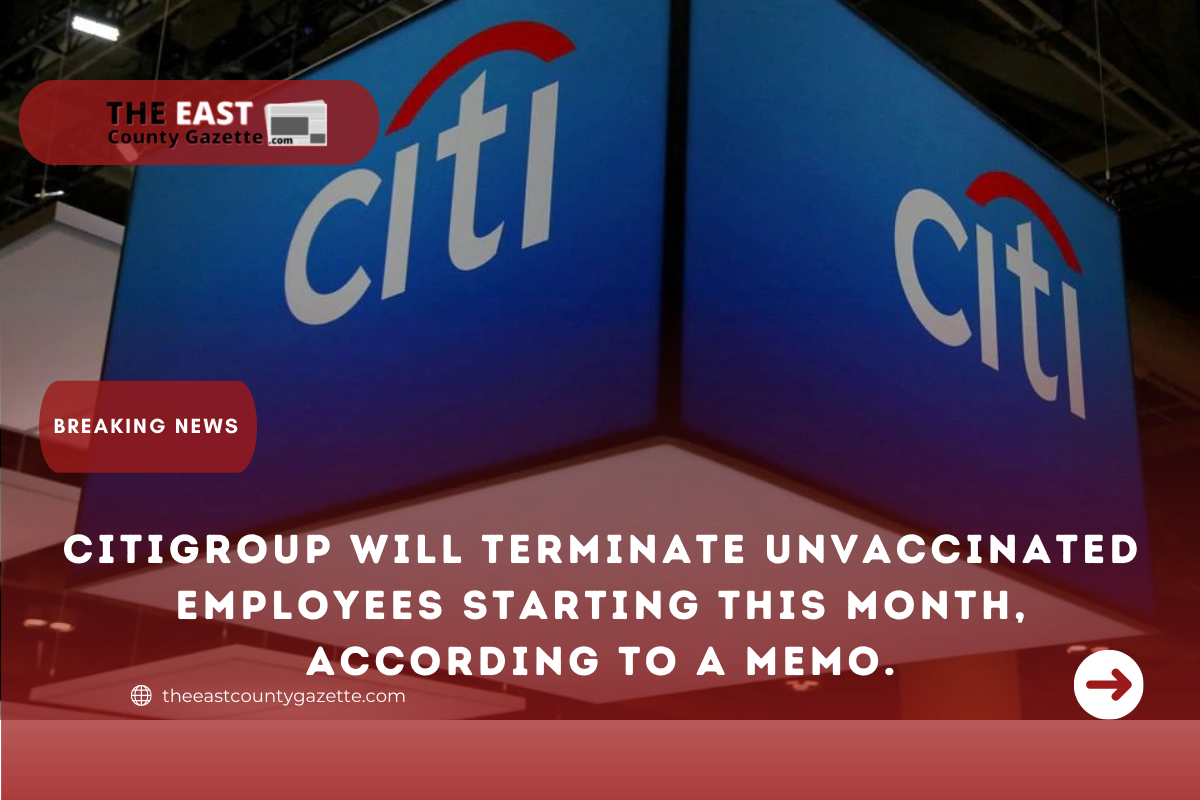A company memo seen by Reuters on Friday states that Citigroup Inc. (C.N) employees in the United States who have not been vaccinated against COVID-19 by Jan. 14 will be placed on unpaid leave and terminated at the end of the month unless they are granted an exemption from the vaccination requirement.
The United States bank revealed its intention to implement new vaccination regulations in October, and it has now become the first big Wall Street institution to enforce stringent vaccination requirements.

The move comes at a time when the financial industry is grappling with how to properly return employees to their places of work and resume normal operations at a time when the highly infectious Omicron coronavirus subtype is spreading like wildfire across the country.
Other large Wall Street firms, including Goldman Sachs & Co. (GS.N), Morgan Stanley (MS.N), and JPMorgan Chase & Co. (JPM.N), have advised some unvaccinated workers to work from home, although none has gone so far as to fire employees in the wake of the outbreak.
While Citigroup is the first Wall Street bank to impose a vaccine requirement, a number of other big U.S. corporations, notably Google and United Airlines, have implemented “no-jab, no-job” policies, albeit with varying degrees of rigor, including Apple and Microsoft.
According to a person acquainted with the situation, more than 90 percent of Citigroup employees have cooperated with the obligation so far, and the number is growing rapidly. The source also stated that the timing of the vaccination mandate will be different for branch employees.
Citing religious or medical exemptions, as well as any other accommodations provided by state or municipal law, Citigroup stated that it would evaluate each situation on an individual basis when announcing its new policy.
When asked why it was complying with the policy of President Joe Biden’s administration, the bank stated it was doing so because the government was a “big and significant” client and thus required that all employees supporting government contracts have a full round of vaccinations.
Citi stated in the memo that “you are welcome to apply for additional opportunities at Citi in the future as long as you are in compliance with Citi’s immunization policy.” “If you have not yet had a vaccination, we strongly advise you to do so as soon as possible.”
Read More: How to Track Dates State and Federal Authorities Pay Benefits?
DISUNITY OVER AN ISSUE
It has become a polarizing subject in the United States, as it has in many other countries throughout the world, with some people passionately opposed and many Republicans skeptical of government and business mandates pushed on citizens.
On Friday, the Supreme Court heard arguments in a case brought by Republican state authorities and business groups seeking to overturn a Biden rule that requires employees to be vaccinated or tested weekly in companies with over 100 employees.
Professor Adam Galinsky of Columbia Business School, who consults with businesses on their return-to-work programs, says that many businesses originally applauded the White House’s vaccine mandate since it relieved them of the responsibility of deciding what vaccines to provide.
In contrast, “businesses are acknowledging that the Biden mandate may not hold up in the conservative Supreme Court,” he explained. The decision will be placed back in their hands if the appeal is unsuccessful, and they will be forced to take some action.
Many financial institutions have postponed their return-to-work plans and are encouraging their employees to get vaccinated and boosted, but have so far refrained from imposing vaccine mandates due to legal concerns.
This will be a difficult and complex policy to implement, according to Chase Hattaway, a partner at law firm RumbergerKirk, who pointed out that the bank will have to traverse federal anti-discrimination regulations as well as state anti-discrimination statutes.
In many circumstances, cities and municipalities will have their own laws, which may necessitate even more carve-outs,” Hattaway said. “Citi will have to tailor its policy to state legislation, and in many cases, towns and municipalities will have their own regulations as well,” Hattaway said.
LEAVE WITHOUT COMPENSATION
In contrast, Jacqueline Voronov, a lawyer at the legal firm Hall Booth Smith, stated, “Courts have consistently upheld the authority of private employers to demand vaccinations.”
“It is permissible for a private employer to demand its own insurance coverage. And if Citi decides to implement the required vaccination policy, they are free to do so “She stated that she would apply if the bank offered medical exclusions.
A rising number of corporations in the United States are requiring employees to receive vaccines in order to preserve their health and avoid operations being interrupted by widespread absences.
United Airlines Chief Executive Officer Scott Kirby stated last month that the airline fired 200 of its 67,000 employees for failing to comply with the company’s mission. United Airlines has 67,000 employees.
Failure to comply with rules that have been imposed on the healthcare business in more than 20 states has resulted in the dismissal of many hospital employees.
Read More: Advocates Ask for Extension of the Child Tax Credit in Final Check Sent
While some companies, such as Tyson Foods Inc (TSN.N), have been successful in getting more than 96 percent of their employees to receive a vaccine, others, such as those in the construction and retail industries, have been resistant to vaccine mandates due to concerns about employee resistance in an already tight labor market.

